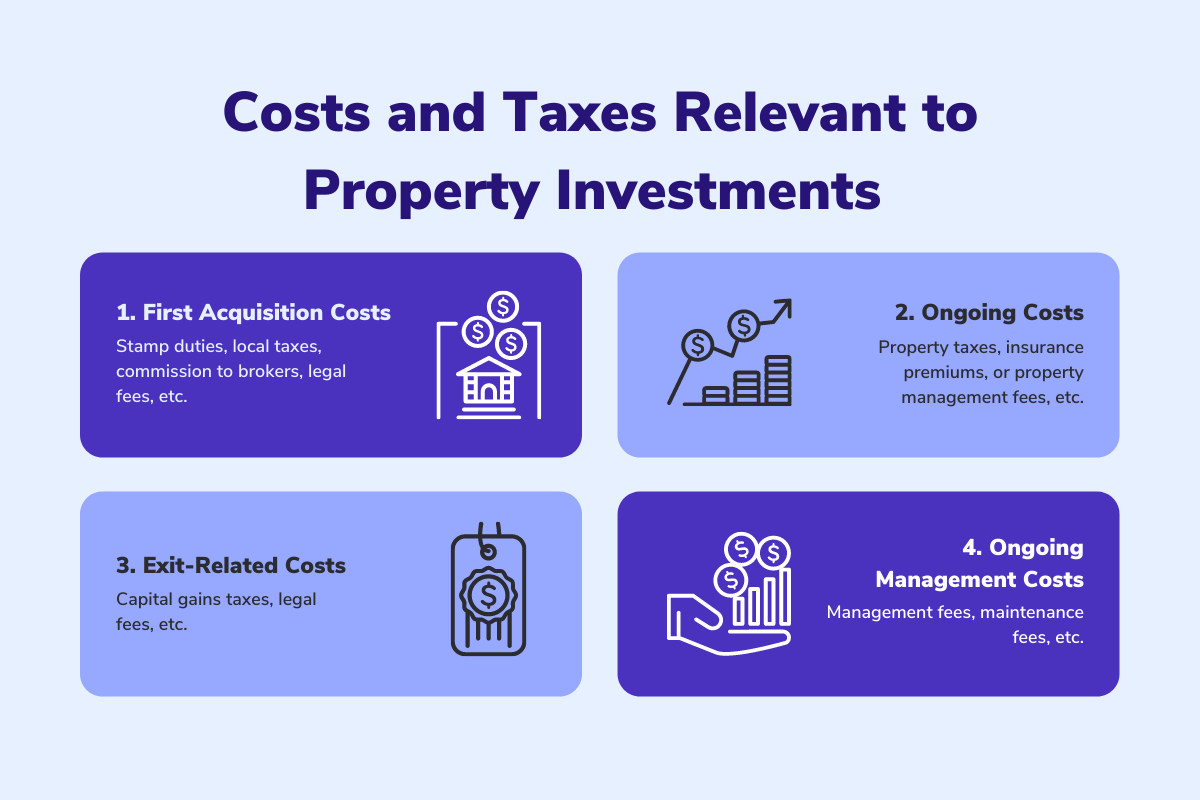How to Build Your Real Estate Investment Portfolio Like a Pro
Novice investors may find it daunting to take the first step to invest in real estate, especially when it involves overseas properties. Check out these guidelines to quickly get yourself on the right track and avoid some common pitfalls.

As with any type of investment, investing in real estate assets calls for careful consideration on multiple fronts. And as you begin to build an investment portfolio that also houses overseas properties, the equation naturally becomes more complicated.
Here are 6 key guiding points to keep in mind when doing so:
1. Know the Market that You are Investing In
When it comes to investing in properties in a foreign land, it is obviously important that you first understand the local rules and regulations, so as to avoid running afoul of the law.
For example, if you were to own residential homes in Australia, you would need to know that you can only sell them to the locals, as foreigners are only allowed to purchase newly built residential properties. Paying a hefty six-figure fine or serving time for a breach of rules may be the last situation you want to find yourself in.
Likewise, when investing in properties in other jurisdictions, it is always necessary to keep yourself abreast of the relevant real estate legislation to steer clear of trouble.
In addition, it is also important to understand the rules and regulations pertaining to foreign ownership of properties in the market you are investing in. For example, some countries may impose additional stamp duty on foreign buyers, while others only allow foreigners to purchase properties in select economic zones.
2. Understand the Relevant Cost and Tax Implications
It is also important to get a firm handle on the costs and taxes relevant to your property investments and factor them into your financial projections. Some of these to consider would include:

3. Be Clear About Your Real Estate Investment Objectives
You can only work towards your goals when you know what they are.
That is why it is important that you decide at the outset on the intended investment time horizon that you intend to lock in your funds, your quantum of investments, as well as how regularly you expect your investment returns to flow in, whether as annual or overall returns.
That way, you will be able to plan and manage your investments more effectively to realise your investment outcomes over time.
4. Diversify Your Real Estate Portfolio
Diversification is a crucial step to manage portfolio risk.
Investing in properties across different markets, real estate asset types, strategies, or investment time horizons, can help to mitigate investment risk and improve risk-adjusted returns over the long term. This is due to the different regulatory risks, interest rate risks, geopolitical risks and natural disasters, among other factors, as well as the different drivers of real estate returns.
So, there is no doubt that diversification goes a long way towards growing your portfolio returns.
Sign Up at RealVantage
5. Review the Performance of Your Investment Portfolio
Of course, you would need to know if your real estate investment portfolio is making financial sense. To find out, you will need to compare your portfolio returns against your original projections from time to time. The simplest ways to do so would be through computing your investment portfolio’s Net Cash Flow and Net Asset Value.
The net cash flow is the amount of profits generated by all the properties in a portfolio, which gives investors an idea of whether it is generating a profit or a loss. This is derived through:
NET CASH FLOW = TOTAL PORTFOLIO INCOME - TOTAL EXPENSES
The Net Asset Value, on the other hand, demonstrates an investment portfolio’s performance and ability to generate value for investors over time. It is calculated using the formula, as follows:
NET ASSET VALUE = TOTAL ASSETS - TOTAL LIABILITIES
These metrics would give you an indication of how your property investments are performing and will help you assess how you could adjust your asset allocation to optimise your returns over time.
6. Leverage the Expertise of a Real Estate Portfolio Manager
There is no easier way to invest in real estate assets and build a constantly optimised property investment portfolio than to do it through a real estate portfolio manager.
Your portfolio manager will manage your invested properties throughout the investment period to maximise returns, while seeing to all real estate transactions and investment processes, from asset selection, financial analysis, and due diligence, to developing a tax-efficient investment structure.
In addition, as the manager’s remuneration is based on investment performance, there is every reason it will stay motivated to drive an even stronger performance of your investment portfolio. It will also be obligated to keep you constantly updated on the status of your investments, so you know that they are being actively taken care of.
Start Building Your Real Estate Investment Portfolio
It is never too early to start investing in real estate assets. And with fractional ownership of property now possible, it is easier than ever to build a property investment portfolio to harness the potential of real estate investing.
So tap into the expertise of a professional property portfolio manager today and get closer to your investment goals sooner!
About RealVantage
RealVantage is a leading real estate co-investment platform, licensed and regulated by the Monetary Authority of Singapore (MAS), that allows our investors to diversify across markets, overseas properties, sectors and investment strategies.
The team at RealVantage are highly qualified professionals who brings about a multi-disciplinary vision and approach in their respective fields towards business development, management, and client satisfaction. The team is led by distinguished Board of Advisors and advisory committee who provide cross-functional and multi-disciplinary expertise to the RealVantage team ranging from real estate, corporate finance, technology, venture capital, and startups growth. The team's philosophy, core values, and technological edge help clients build a diversified and high-performing real estate investment portfolio.
Get in touch with RealVantage today to see how they can help you in your real estate investment journey.
Disclaimer: The information and/or documents contained in this article does not constitute financial advice and is meant for educational purposes. Please consult your financial advisor, accountant, and/or attorney before proceeding with any financial/real estate investments.
